Search Results for 'British Army'
75 results found.
Guerilla Days in Ireland brings Tom Barry’s story to the Town Hall
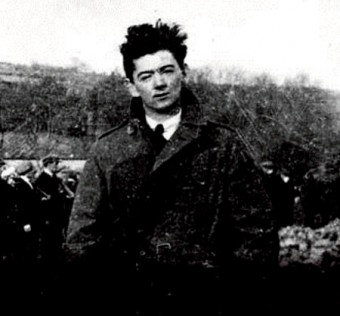
FOLLOWING ITS world premiere production last year, the smash hit sell-out show Guerilla Days in Ireland is now coming to the Town Hall Theatre. It tells the gripping story of Tom Barry, legendary commander of the IRA’s West Cork Flying Column in the War of Independence. The play is adapted by Neil Pearson from Barry’s classic memoir, Guerilla Days in Ireland, published in 1949 and one of the finest first-hand accounts of this momentous period in Irish history.
It’s a long way from Sickeen to Sicily
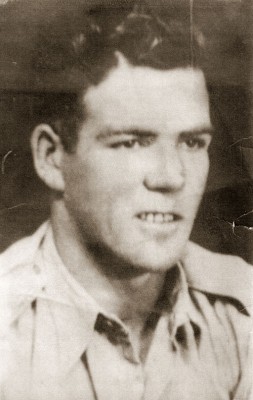
About 1,600 miles as the crow flies. A young Galwegian found himself there in the stinking heat of July 1943. He would swap the Dyke Road for the Sunken Road, or the Sandy River for the Simeto River. For sure he would rather have been somewhere else, kicking ball in the Plots, up the Dyke Road, or swimming down at the Waterside, maybe even venturing to Cooper’s Cave... turning up in St Brendan’s with no homework done was a walk in the park compared to this.
Remembering John Arden
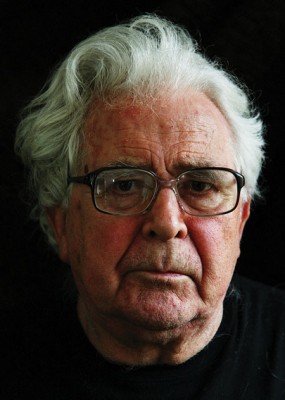
It was Ronald Reagan who first introduced me to John Arden and Margaretta D’Arcy. Well, indirectly. I’ll get back to that in a minute.
Second best not an option as Garrycastle head to Croke Park
The clock is ticking. Before we know it the ball will be thrown in and the 2012 AIB All-Ireland final will be underway and if a new name will be on the silverware by full time remains to be seen.
We need a referendum on the austerity treaty
“I have come to the conclusion that politics are too serious a matter to be left to the politicians,” the former French president Charles De Gaulle once said. Indeed he would have been within his rights to substitute the word ‘dangerous’ for ‘serious’.
The end of the tramline
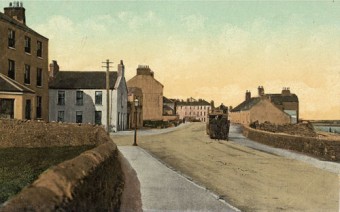
This photograph of the sleepy village of Salthill was taken about 100 years ago. In the mid nineteenth century, the village was very small and occupied mostly by fishermen, some lodging houses and a few pubs. The area was much changed and improved by the building of the Eglinton Hotel in the mid 1860’s. This up-market establishment was on a much grander scale than any other building in the vicinity, and it attracted a different kind of tourist. It is on the left of our picture, with the small bar in front.
Galway 1910 - 1923, the changing years
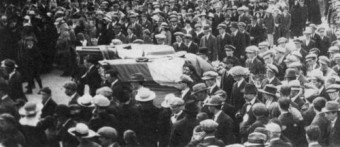
Early in 1916, Pádraic Pearse visited Athenry to discuss plans for the Rising. He wanted the Volunteers to hold the county at the River Suck at Ballinasloe, to capture Galway city, and then, if possible, to march on Dublin. There were several variations of this strategy, but whichever plan was finally agreed, its success depended on the Volunteers receiving modern weaponry. Up to then the men had been rehearsing with shotguns, and sticks. Pearse assured them that small arms, including assault rifles and machine guns, were on their way. They would arrive in Gort, and be distributed from there.
The Crimean cannon
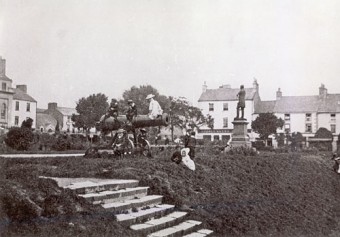
August 3 1857 was a day of celebration in Galway as the British War Department handed over two Russian cannons to the town commissioners. These cannon were described as “64 pounders of a heavy and clumsy description, each weighing two tons”, and were part of a large amount of Russian ordnance which fell into the hands of the 88th regiment during the Crimean War. Many of these artillery pieces were presented by the War Department as trophies to cities and town across the British Isles.
Bernadette Devlin McAliskey’s extraordinary political journey
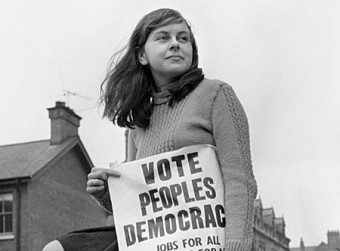
SHE WAS the firebrand young MP from County Tyrone whose electrifying presence on the stage of Northern Irish politics in the late 1960s catapulted her to the forefront of the Civil Rights movement.
We can be proud of our military heritage
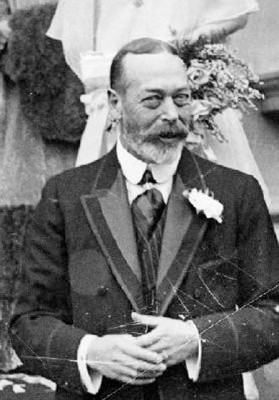
On June 12 1922 a very special ceremony took place at Windsor Castle, near London. Following the establishment of the Irish Free State the previous December, five Irish regiments, including the Connaught Rangers, the Royal Irish, the Leinsters, the Munsters, and the Dublin Fusiliers, which had served the British army with exceptional valour at times, were disbanded. It was a day of special significance for both the participants and onlookers. It was reported in the London Times.

